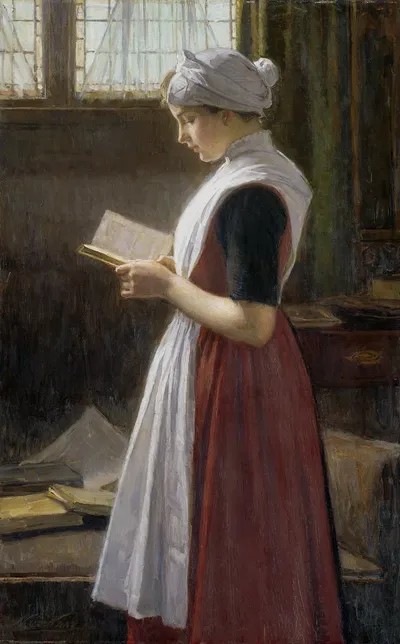Building a Better Knowledge System (and an Archivist Class)
My game doesn't have any skill checks. When I was considering whether or not to include them, I realized that failed skill checks in my 5e games often drastically reduce how interesting a challenge is. I am more interested in how you engage with a trap or challenge you can see vs taxing your hp for failing a perception check. Without a skill system, my players spend less time looking for answers on their character sheet, and more time making Interesting decisions. Very rarely do I feel that a session is more interesting because of a skill check, so I removed them.
I've been happy with the results. Cutting skills and letting characters just do stuff more often made my system quicker to teach, easier to understand (no need to debate whether a roll should be investigation or perception), and emphasized player choice.
However, sometimes I do miss knowledge skills. Not enough to include them, I don't like presenting knowledge as a static, slow-changing number.
Most of the time, I'm content to just give my players information. If they ask me a question that their character would likely know the answer to, I just tell them. But sometimes it's not clear if the character would know something or not. Does the witch understand the basics of magic, how it works, and what a coven is? Yes, no roll needed. But does she know how many women were falsely accused of witchcraft before the first coven was formed? Maybe, but also maybe not.
So here's my solution, heavily inspired by To Distant Land’s system for books.
Lore
Characters can learn lore. Each character will start with a few pieces of lore based on their class and can learn more during the game by doing research or reading books. When a character wants to know information relating to a subject, they have lore in, they can spend the relevant piece of lore to learn the answer.

Think of lore as a character's inventory of knowledge. They can hold an amount of lore equal to their mind score and can spend it at any time. Each piece of lore has a subject and a rarity.
Subject refers to what the lore is about, so you know when to use it. There is no preset list of subjects; they can be generated on the fly as needed. A subject should be at least as specific as a 101-level college course. Cooking is a good subject; General Knowledge is too vague.
Example Subjects:
Ratling literature
Military history
Botany
Farming
Wild Animals
Necromancy
Rarity refers to how known a piece of lore is. A 101 level magic text book probably won’t tell you how to become a lich, but a rare necromancy text might. There are 3 rarities: simple, advanced, and esoteric.
| Rarity | When to use |
|---|---|
| Simple | Basic knowledge for those with a cursory knowledge of the subject. |
| Advanced | Knowledge any expert in a subject would know, but not most laypeople or amateurs. |
| Esoteric | Very few know this information, even among experts in a subject. |
You can use a lower rarity piece of lore to attempt to learn something more esoteric, but you will get incomplete information.
For example: A player character hears an NPC talk about becoming a lich, they spend a piece of simple necromancy lore to learn more about the process of becoming a lich. The GM tells them that they don’t know the specifics, but they know it is a taboo ritual that requires the blood of innocents.
Once a character uses a piece of lore, it is spent and removed from their character sheet.
Gaining Knowledge
There are 3 common ways that characters can gain lore.
- Each class gives characters a few pieces of advanced lore related to their class.
- Spending a day reading a new book grants you a piece of lore based on the subject and rarity of the book.
- Spending a week doing research in a library or museum grants you a piece of lore based on the subjects covered by the archive and the rarity of the archive’s items.
You should not give lore in any situation where a player is already gaining specific information. If you are talking to a professor, and ask them a specific question, you don’t get lore, you get the specific answer the professor gives you. If you read a step-by-step manual on how to trim your hedges, you don’t get hedge lore; you just know how to trim your hedges. Lore is for gaining non-specific information on a subject.
Using this system
Even if one incorporates this knowledge system, it’s still best to just tell characters things when it makes sense. The swordfighter doesn’t need to spend lore to explain the basic mechanics of sword fighting, but the wizard that has only ever used a dagger might. Lore is for when it is not clear whether a character would know something or not. Use your discretion.
Additionally, even esoteric lore shouldn’t let a character know something that nobody knows.
If you use this system, add books to your treasure table! After character creation, lore comes entirely from books and archives, so make sure you put some in your game.
Since this system is designed for a game with GLOG classes, we can also whip up a knowledge based class.
Archivist
Some folks say knowledge is power. You don’t know if that’s true, but you’ll be damned if you don't find out.

Each time you take an archivist template you gain 3 pieces of advanced lore in 3 different subjects.
- Combine Knowledge, Speed Reader
- Efficient Memory, Better Research
- Deliver Seminar
- Knowledge is Power, Multipotentialite
Combine Knowledge
You have learned to make logical connections between simple information to find deeper meaning. You can convert 2 pieces of simple lore of the same subject into 1 advanced lore of that subject. Additionally, you can convert 3 pieces of advanced lore of the same subject into 1 piece of esoteric lore of that subject.
Speed Reader
When you spend a day reading, you can finish 2 books instead of 1.
Efficient Memory
Your maximum lore capacity increases to twice your Mind stat.
Better Research
When you research at a library, museum, or archive, the rarity of the lore you gain is increased by 1 step (simple -> advanced -> esoteric).
Deliver Seminar
When you deliver a speech, you may spend an advanced or esoteric piece of lore that is related to the subject of the speech. When you do, 2d6 members of the audience gain a piece of lore that is 1 rarity below the piece of lore you spent (esoteric -> advanced -> simple). This piece of lore has the same subject as the one you spent.
Knowledge is Power
You’ve learned to apply your knowledge in an extremely practical way. Whenever you make a check, before you roll, you can spend a piece of advanced or esoteric lore in a subject related to the check to gain a -2 bonus.
Multipotentialite
You know the answer to any question that could be answered by spending a simple piece of lore.